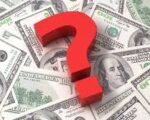For clergy members and church leaders, navigating tax regulations can often feel overwhelming. However, one crucial benefit available to ministers is the parsonage allowance. If you’re a member of the clergy or a professional working with religious organizations, understanding this tax exemption is essential. This article unpacks what a parsonage allowance is, how it works, and who qualifies for it.
What Is a Parsonage Allowance?
A parsonage allowance is a tax-deductible amount provided by a house of worship to its minister to cover housing expenses. Sometimes referred to as a rental or housing allowance, it is specifically excluded from the minister’s gross income for federal tax purposes under Section 107 of the Internal Revenue Code (IRC).
It is important to note that the term “minister” encompasses clergy from various religious denominations, not just Christian pastors. This includes individuals from Jewish, Muslim, and other religious traditions, as recognized by the IRS.
Key Features of a Parsonage Allowance:
- The allowance applies exclusively to a minister’s primary residence.
- It exempts housing-related expenses from federal gross income.
- The parsonage allowance must be designated in advance by the minister’s governing board.
What Expenses Are Covered?
Ministers receiving a parsonage allowance can use it to offset a wide range of housing expenses. However, only the costs directly related to maintaining a primary residence qualify. These expenses include:
- Mortgage payments (both principal and interest)
- Rent payments
- Utilities (e.g., electricity, gas, water)
- Property taxes
- Homeowner’s insurance
- Homeowners’ association (HOA) dues
- Remodeling and maintenance costs
- Furniture purchase and repairs (if not reimbursed by the employer)
It’s also important to understand what cannot be claimed under a parsonage allowance. Expenses such as food, clothing, cleaning services, or costs unrelated to housing (e.g., tuition covered by home equity loans) are not eligible.
How Does the Parsonage Allowance Work for Taxes?
The parsonage allowance offers significant tax benefits. However, beneficiaries must adhere to strict IRS requirements. Here are some key points regarding taxes:
For Federal Income Tax:
The parsonage allowance reduces the minister’s gross income, meaning the amount designated as a housing allowance is excluded from income taxes. However, this only applies to the lesser of:
- The amount officially designated as a housing allowance prior to payment.
- The amount actually spent on housing expenses.
- The home’s fair market rental value (furnished, including utilities).
If the designated allowance exceeds actual housing costs or the fair market rental value, the excess must be reported as taxable income.
For Self-Employment Tax:
Unlike federal income tax, the parsonage allowance is not excluded from self-employment tax. Ministers must include the fair market rental value of their housing allowance when calculating self-employment earnings. This distinction ensures that even these tax-exempt wages contribute to Social Security and Medicare.
Claiming Deductions:
Ministers with itemized deductions can still deduct mortgage interest and property taxes from their taxable income, in addition to receiving the housing exclusion. This double benefit can provide substantial financial savings.
Who Qualifies for a Parsonage Allowance?
Eligibility for the parsonage allowance depends on how the IRS defines a “minister” for tax purposes. While ordained ministers are typically eligible, commissioned or licensed ministers may not automatically qualify. The following conditions can help determine qualifications:
- The individual must perform ministerial services, such as conducting religious worship, performing religious ceremonies, or providing spiritual guidance.
- The allowance must be designated by the governing body of the house of worship in advance of any payment.
- The allowance applies solely to primary residences and cannot extend to commercial properties or vacation homes.
Additionally, retired ministers may also benefit from this tax exemption. For example, distributions from a 403(b)(9) plan can be designated as a parsonage allowance, offering financial benefits in retirement. However, funds rolled into an IRA or 401(k) lose this designation.
Why Is the Parsonage Allowance Important?
The parsonage allowance is a valuable tool for clergy and religious institutions alike. It recognizes the unique financial arrangements of ministry while offering significant tax advantages. By reducing taxable income, ministers can stretch their compensation further to focus on doing what they do best—serving their communities.
For churches, offering a parsonage allowance can help attract and retain ministers, especially amidst financial constraints. By covering essential living expenses, the allowance also reduces financial stress on clergy.
Tips for Maximizing the Parsonage Allowance
To ensure you’re compliant and fully benefit from the parsonage allowance, keep the following tips in mind:
- Get Proper Designation: Ensure your governing board designates the housing allowance before receiving the payment.
- Track Expenses: Maintain detailed records of all housing-related costs, such as receipts for utilities, mortgage payments, and repairs.
- Understand Limitations: Be aware of ineligible expenses, such as food or clothing, so you don’t accidentally include them.
- Work with a Tax Professional: Given the complexities of self-employment taxes and housing exemptions, consulting a tax professional familiar with clergy taxes is invaluable.
Example Scenario
To illustrate the parsonage allowance in action, consider the following example:
An ordained minister earns an annual salary of $50,000 from their church. The church also designates $15,000 as a parsonage allowance to cover rent and utilities. For federal income tax purposes, the minister’s taxable income is reduced to $35,000. However, for self-employment tax purposes, the minister must include the $15,000 parsonage allowance, making their self-employment earnings $65,000.
This scenario highlights the importance of understanding how the allowance impacts different aspects of taxation.
Final Thoughts
The parsonage allowance is a tax provision uniquely tailored to the needs of clergy, helping them handle housing costs while reducing tax burdens. If you’re a member of the clergy, church leader, or tax professional, understanding these rules is vital for financial planning and compliance.
Have questions about how the parsonage allowance applies to your situation? Consider consulting with a knowledgeable tax advisor or exploring additional resources to ensure you’re maximizing this valuable benefit.








